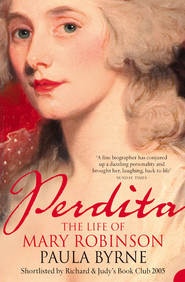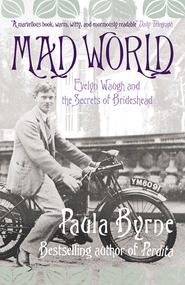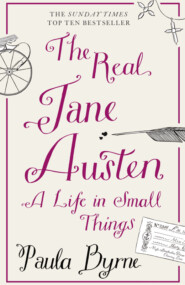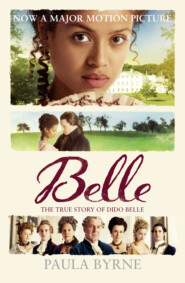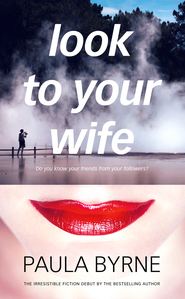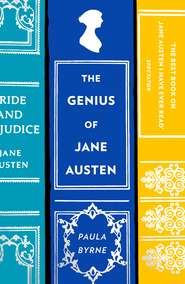По всем вопросам обращайтесь на: info@litportal.ru
(©) 2003-2024.
✖
Kick: The True Story of Kick Kennedy, JFK’s Forgotten Sister and the Heir to Chatsworth
Настройки чтения
Размер шрифта
Высота строк
Поля
Her extreme self-possession had a darker side: an inability to give fully of herself. This caused her a degree of anguish. Many years later, she confided to a close male friend that she was afraid that she didn’t have it in her to be truly intimate with a man. This prudishness was coupled with an extraordinary warmth and charisma. It was a heady and intoxicating mix.
It seemed also that Kick was saving herself for someone special, that she had a sense of destiny. She was happy to date American men, but always at a distance.
11
Politics and Europe Revisited (#uf9c37b9e-24ca-51ad-af1e-5774b7de9ba7)
love from a daughter who needs more sense.
Kick Kennedy
The stage set looked like a ‘Sleepy Time Down South’ location from a movie about the days of slavery. The bandstand was a replica of a Southern mansion with large white columns and a backdrop painted with weeping willows and slave quarters. The band played on the veranda of the mansion. A few steps down led to the dance floor, which was also used for floorshows. This was the Cotton Club, which in 1936 relocated to new premises in Times Square on Broadway. It was one of the most sophisticated jazz nightclubs, presenting top-rate black performers for an all-white audience. Waiters in red tuxedos served champagne to Manhattan’s caviar-and-martini crowd, along with delicious suppers of venison steak and Chinese chop suey.
The club had an illicit feel. Rumours abounded about associations with the Mob. It opened at nine for dining and light music, then at midnight the entertainment would begin with the first floorshow. It closed at 3 a.m.
Sitting at one of the tables, set out in a horseshoe design, was the sixteen-year-old convent girl Kathleen Kennedy with her brother Jack and his friend Lem Billings. Jack had recovered his health, had begun at Harvard. He had lost his virginity to a white prostitute in Harlem for 3 dollars. Like his father, he had acquired a taste for showgirls and waitresses. Jack was making up for lost time. He made no secret of his libertinism. In part, it may well have been a reaction to his mother’s frigidity, her strict piety and emotional coldness, but it was also, given all the health problems he had to endure, a way of feeling alive. Jack Kennedy lived for the moment.
In the fall of 1936, Kick headed back to ‘the old fire-trap’ of Noroton to finish her Convent education. She was unhappy to be going back and saw Jack and Lem whenever she could. It was like old times, the three of them being together. Jack had promised to take Kick to the Cotton Club. But when Joe discovered that his precious daughter had gone there he was livid.
It wasn’t only that he disapproved of Kick’s and Jack’s duplicity, but he was also worried about the family’s public image. Joe was back on the campaign train with Roosevelt. In September of that year, his campaign book, I’m for Roosevelt, was published. Joe let his feelings be known and Kick wrote him a contrite letter: ‘love from a daughter who needs more sense’. In October, Joe gave a series of nationally broadcast radio speeches, at his own expense, urging voters to back Roosevelt. He sent Kick a telegram asking her to remember to tune in to his latest broadcast. That month he opened up an account for her at Saks.
Kick, to her amusement, had heard rumours that Jack’s Harvard friend Torbert Macdonald kept her photograph on his bureau. Jack had met Torby on the Cape by accident, but at Harvard they became firm friends. As with Lem Billings, it was a friendship that lasted all his life. Lem and Torby adored Kick, but she kept them at a distance, treating them as she did her brothers.
Nineteen-thirty-six was an important year for the Kennedy family for two reasons. The first was Roosevelt’s remarkable landslide victory in the November elections; he won 523 of the 531 electoral votes.1 (#litres_trial_promo) Joe was delighted. Then the same month, Cardinal Pacelli, the Vatican Secretary of State, made a visit to America and wished to meet with Roosevelt. Pacelli was widely considered to be the second most powerful priest in the world. Two and a half years later he would be crowned Pope Pius XII. Pacelli was accompanied on this trip by Enrico Galeazzi, the man who had so dazzled Kick when she met him in Rome, and who had organized for her party a private audience with the Pope.
Galeazzi called on Joe at his office in the Rockefeller Plaza, noting the blue carpet, ‘of the same colour as the eyes of this man’. They would become firm friends. Galeazzi said that Joe ‘could be as gentle and kind as a gallant knight or as violent and cross as a general at war’.2 (#litres_trial_promo)
On a sunny November day, Rose and Joe travelled in a private train with Cardinal Pacelli as he rode to the Hyde Park home of President Roosevelt. Rose felt exalted, thinking herself ‘in the presence of a mortal very close to God’. On the way back, Pacelli stopped at the Kennedys’ Bronxville home to take tea and meet the children. They were finally achieving their dream of becoming one of America’s prominent Catholic families.
Now that Joe was turning into a powerful political figure, with huge press interest in him and his family, Rose spoke to the children about the importance of humility and ‘public service’. She would tell them that great wealth brought responsibility. And she would (mis)quote from St Luke: ‘To whom much has been given, much will be required.’3 (#litres_trial_promo)
In January 1937, Joe and the family were invited to the President’s second inauguration, but young Joe and Jack were unable to attend, due to mid-term examinations. The children were invited to a private luncheon in the White House ballroom. A month later, Joe was asked to head up a new federal agency, the United States Maritime Commission. It was not the job that he wanted, but he accepted and leased Marwood again, writing to a friend to say how much he was looking forward to ‘nice cool mint juleps and Boston lobster’.4 (#litres_trial_promo) Joe was biding his time.
That spring, he wrote a loving letter to Kick at Noroton. He knew how much she disliked it, but felt that she was making a go of it. Jack had told his father how much the nuns liked Kick, and Joe was gratified and encouraging: ‘I think that is really a great tribute to you, knowing how you felt about going back to the convent, to have made as big a success as you have of it.’5 (#litres_trial_promo)
Kick met a handsome shipping heir called Peter Grace. She was seventeen and he was twenty-three when her closest friend Charlotte McDonnell introduced them. She took Kick to a dinner at her friend Michael Grace’s home. That evening his elder brother Peter, a Yale graduate, turned up. He was instantly dazzled by Kick. When his brother offered him a challenge he took it up in order to impress. Michael, knowing that his brother was a hockey player and not a footballer, challenged Peter to tackle a huge football player who was one of the guests. Peter, still in his business suit, tackled the man and broke his leg. With utter insouciance, Peter, without breaking a sweat, walked away with the words: ‘If you don’t want your friend hurt, don’t bring him around here.’
Kick, as he fully expected, was impressed. He had a hunch that she liked tough men. He became her first serious boyfriend. She liked to remind him of their first meeting: ‘pretty tough guy, aren’t you?’6 (#litres_trial_promo)
Peter Grace was similar to her brothers. He had Irish Catholic roots, was educated at an Ivy League college, was a first-rate sportsman and was wealthy. Peter was captivated by Kick. He liked the fact that she was a good convent girl, and wanted to marry her, even though she was only seventeen. When he picked her up for dates he noticed that her father was away on business but her sharp-eyed mother would sit and talk to him while he waited for Kick to get ready.7 (#litres_trial_promo)
In June 1937, Kick finally graduated from Noroton. Joe sent her a congratulatory telegram: ‘You have proved to me very definitely that you are made of fine stuff and I am more than proud of you.’ She was free at last. She enrolled at Parsons School of Fine and Applied Art in New York to learn design and decorating. But, for the summer, it was back to Europe.
Rose, young Joe and Kick boarded the SS Washington for their European tour, planning, vaguely, to meet up with Jack later in the summer.
Jack’s trip was on a low budget, as Lem was short of money. Lem was impressed by Jack’s ability to slum it.8 (#litres_trial_promo) Kick had given her brother a present of a leather-bound diary entitled ‘My Trip’. Lem observed that this European tour was a seminal moment in Jack’s life. ‘He had been studying French and European history at Harvard, and now he wanted to see it all himself.’9 (#litres_trial_promo)
They travelled to France, Italy, Germany, Holland and England. Jack was disappointed that they were forbidden entry to Spain on account of the civil war. Lem observed a new seriousness in Jack as he encountered Europe in those pre-war years, showing advanced powers of ‘observation and judgment’.10 (#litres_trial_promo) ‘He was the same irrepressible, girl-obsessed millionaire’s son from Bronxville, yet also a different Jack, for the intellect that he normally kept so well concealed was at last engaged. Harvard had begun to bite.’11 (#litres_trial_promo)
Jack kept detailed notes in the diary that Kick had given him, and sent letters home to his father about the European situation. Though no fans of Fascism, both young men were impressed by Italy, as had been Kick the year before. ‘Italy was cleaner and the people looked more prosperous than we had anticipated,’ recalled Lem. ‘I had a feeling when I was in Italy that Mussolini had done a lot of good for Italy.’12 (#litres_trial_promo)
In Germany, Lem noticed that Jack insisted on picking up every hitchhiker. He was puzzled about this until he realized Jack’s strategy. Most of the hikers were students, who had good English, which meant that the two Americans learnt a lot about the situation in Germany. Jack and Lem loathed Germany and the Germans. Jack noted in his diary: ‘Hitler seems popular here, as Mussolini was in Italy. Although propaganda seems to be his strongest point.’13 (#litres_trial_promo) He found the Germans arrogant and insufferable, virulently nationalistic and anti-American. The nicest German they met, he said, was a dog called Dunker, which they bought for Jack’s current girlfriend. They missed seeing Hitler speak at Nuremberg by just a few days, something they always regretted.
Kick and Joe Jr took in tours of Ireland, home of their ancestors, and of Scotland. In Ireland they stayed for two weeks. ‘Loved every part of it from Killarney upwards,’ Kick told her father.14 (#litres_trial_promo) Killarney, in County Kerry, is one of the most beautiful parts of south-western Ireland. Lush and green, it boasts lakes, waterfalls, woodland, beaches and moors. She thought the scenery ‘gorgeous’, and sent her father a postcard of Dinis Island, with its spectacular hills and lake. One of the most memorable sights was the fifteenth-century Ross Castle, on the edge of the waters of Lough Leane. Kick could never have anticipated that one day she would have her very own Irish castle. She wrote excitedly to her father, in Washington, that she was ‘amidst many Kennedys’.15 (#litres_trial_promo)
She visited her Neuilly Irish friends in the small seaside resort of Portrush in County Antrim, in Northern Ireland: ‘It was cold but a lot of fun.’16 (#litres_trial_promo) Rose and Joe had spent their lives trying to escape their Irish roots, but Kick loved the Irish: ‘they really are awfully nice, but there is quite a marked difference between a Northern and Southern Irishman. Prefer the Southerners.’ She told Joe Sr that she had ‘kissed the Blarney Stone, which was quite a feat’. Kissing the stone, which is supposed to give you the gift of the gab, involves climbing to the top of Blarney Castle, near Cork, and stretching backwards over the edge of a parapet. Kick achieved it, while Joe Jr, pessimistically, told her how easy it was to fall to your death below.
From Ireland it was on to Scotland. They were staying at the grand country house of their father’s friend and business associate Sir James Calder, with whom relations were now less strained than they had been. They went trout fishing and met some Scottish friends of the Calders, and Kick went shopping to buy tweeds and sweaters. An English MP took a shine to Kick, and asked her to go out with him when she got back to London.17 (#litres_trial_promo) Joe went shooting every day, and walked across the moors wearing only one shoe, as his other foot had blisters. Sir James gave Kick a small rifle to shoot rabbits: ‘I shall try my luck today.’
Back in London, Kick arranged less glamorous lodgings, a cheap boarding house in Talbot Square, off Hyde Park. She met up with Jack, now back from Germany, and they went shopping before heading off on a train to Southampton to meet Rose. Kick and Rose left for home and Jack made his way back to London and Lem. On the journey, he consumed a ‘liberal dose of chocolates and tomato juice’. He suddenly became very ill, covered in hives. He saw no fewer than four doctors, who were puzzled by his hives and low blood count. Lem said that Jack was terribly sick, but as usual he did not complain. Lem joked to Jack that if he ever wrote his life story he would call it ‘John F. Kennedy, a Medical History’.18 (#litres_trial_promo) Suddenly the hives disappeared and off they went, exploring England.
At the end of August, the boys went home and were met by Kick in New York. They proudly handed over the brace of grouse they had shot in Scotland for her to look after while they went through customs. When they met up afterwards, she told them that the birds had smelt so bad that she had thrown them off the dock. Jack and Lem were furious.
This trip to Great Britain was memorable for Jack and Kick. It was when they truly fell in love with England. Both romantic by nature, they adored the lush scenery, the stately homes and castles and, above all, the people. They intuitively understood the understated British humour. Both being gifted with ‘Irish Blarney’, they appreciated wit and irony. They had a very British sensibility: never cry, don’t show your emotions, make light of troubles and always keep a sense of humour. Kick and Jack were drawn to emotional coolness, but also to loyalty and kindness. A friend was a friend for life.
Lem said that Jack would do anything to hide his emotions, but at the same time he was extremely warm: ‘I never knew anyone with stronger feelings of loyalty.’19 (#litres_trial_promo) The journalist Joe Alsop thought that there was something ‘intrinsically English’ about Jack: ‘He was terribly old-fashioned, almost like, sort of English grandee kind of snobbishness. It was a kind of snobbery of style … he was snobbish about courage, and he was snobbish about experience … He wanted experience to be intense … to my way of thinking he wasn’t really like an American.’20 (#litres_trial_promo)
Jack’s love of reading, especially history, and his intellectual curiosity endeared him to the English people he met. His travels in Europe, much as the situation was deteriorating politically, moved him deeply. Like Kick, he also relished being in countries (France, Italy and Southern Ireland) where Roman Catholicism was the main faith. Throughout the great European road trip, he never missed church on Sunday.
When he returned to Harvard, Jack took as one of his courses ‘The History of European Art’. He had become a Europhile. He saw England as ‘the political anchor of Europe, the guarantor of peace between arrogant Germans, complacent French, noisy Latins and Communist Russians’.21 (#litres_trial_promo) This was not a position that his father would share. Jack wrote in the diary given to him by his sister: ‘Isn’t the chance of war less as Britain gets stronger?’ Lem noted that after their European tour there was a new seriousness to his friend.
Jack and Kick were to get to know England more thoroughly than they ever could have anticipated. Rose had a plan. She was just as ambitious as Joe, and now they wanted payback from Roosevelt for Joe’s support. In her memoirs, Rose made the point that Joe wanted a diplomatic role, but he was bad at languages. What else could he do?
12
The Ambassador (#uf9c37b9e-24ca-51ad-af1e-5774b7de9ba7)
You tempt all the Gods of the world by diving into the Court of St James’s as an expert … if you don’t realize that soon enough, you are going to be hurt as you were never hurt in your life.
Boake Carter, friend of Joe Kennedy1 (#litres_trial_promo)
In the fall of 1937, Joe Kennedy entered the Oval Office with Jimmy Roosevelt, the son of the President and one of his closest friends.
‘Joe, would you mind taking your pants down?’
Joe looked at the President, incredulous. ‘We couldn’t believe our ears,’ recalled the President’s son, who had arranged the meeting.
‘Did you just say what I think you said?’ asked Kennedy.
The President replied, ‘Yes, indeed.’
James Roosevelt recalled that ‘Joe Kennedy undid his suspenders and dropped his pants and stood there in his shorts, looking silly and embarrassed.’ The President told Kennedy, ‘Someone who saw you in a bathing suit once told me something I now know to be true. Joe, just look at your legs. You are just about the most bow-legged man I have ever seen. Don’t you know that the ambassador to the Court of St James’s has to go through an induction ceremony in which he wears knee britches and silk stockings? Can you imagine how he’ll look? When photos of our new ambassador appear all over the world, we’ll be a laughing stock. You’re just not right for the job, Joe.’2 (#litres_trial_promo)
Having been chairman of the SEC and later of the Maritime Commission, Joe had been angling for the position of Secretary of the Treasury. When it was made clear by FDR that he was not in the running, he set his mind on Ambassador to the Court of St James’s, egged on by Rose. Kennedy, as an Irish-American, had no great love for England, but with Hitler’s rise and Mussolini’s march through Ethiopia it was now one of the most important diplomatic posts in the world.
Вы ознакомились с фрагментом книги.
Приобретайте полный текст книги у нашего партнера:
Приобретайте полный текст книги у нашего партнера:






